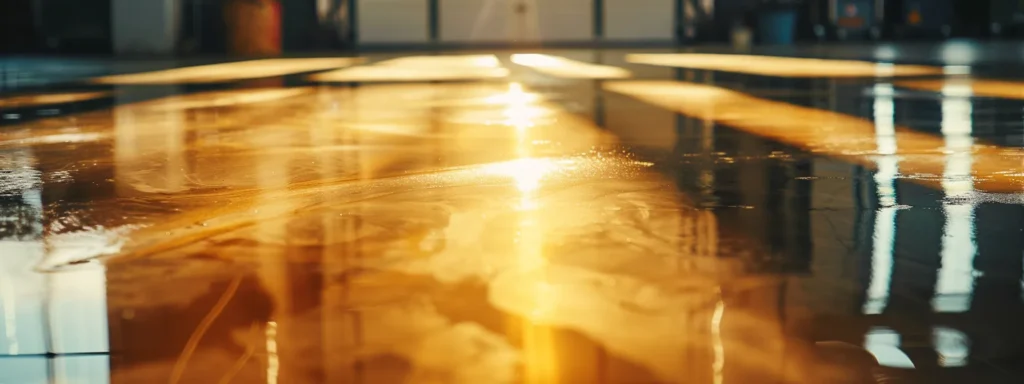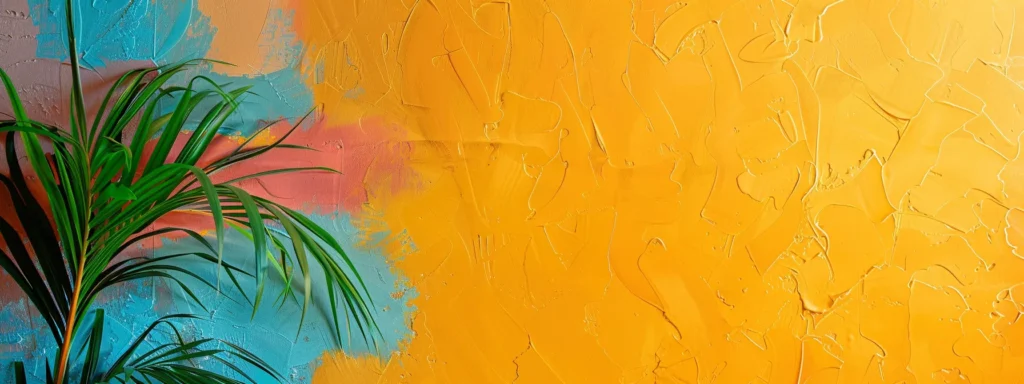- December 17, 2024
- Blacksheep Construction
Table Of Contents:
Choosing the right paint for your home can be challenging, especially when deciding between water-based and oil-based options. In Raleigh, the local climate and specific needs of your interior painting project can significantly influence this choice. This guide will explore the benefits of both types of paints, compare costs and maintenance requirements, and help homeowners make informed decisions. By understanding these factors, readers can avoid common pitfalls, such as dealing with strong odors from oil paint or the challenges of stains on water-based finishes.
Comprehensive Table of Contents for Paint Guide in Raleigh
- Water-based paints dry quickly and are easy to clean, ideal for interior projects
- Oil-based paints provide durability and a rich finish, suitable for high-traffic areas
- Humidity affects drying times; oil-based paints perform better in humid conditions
- Proper surface preparation enhances paint adhesion and durability for both paint types
- Consulting local experts can help homeowners choose the right paint for their specific needs
Understanding Water-Based and Oil-Based Paints

Water-based paints, such as latex and acrylic paint, are known for their quick drying times and easy cleanup, making them ideal for various applications in interior painting raleigh nc. In contrast, oil-based paints, often containing linseed oil and resin, offer durability and a smooth finish, suitable for high-traffic areas. This section will explore the key characteristics of both paint types, their performance, and common uses, providing valuable insights for homeowners in Raleigh.
Key Characteristics of Water-Based Paints
Water-based paints, primarily composed of water as a solvent, offer several advantages for homeowners in Raleigh. These paints dry quickly, allowing for faster project completion, and they can be easily cleaned up with soap and water, making them user-friendly. Unlike oil-based options, which often contain alkyd or polyurethane, water-based paints provide a flexible coat that resists yellowing over time, making them ideal for interior walls and ceilings.
Key Characteristics of Oil-Based Paints
Oil-based paints are known for their durability and rich sheen, making them a popular choice for high-traffic areas and surfaces that require a robust finish. These paints often contain varnish or shellac, which enhances their resistance to wear and tear, particularly on wood surfaces. When applied with a brush, oil-based paints provide a smooth, even coat that can elevate the appearance of furniture and cabinetry, ensuring long-lasting beauty and protection.
How Each Paint Type Performs
When considering how each paint type performs, homeowners in Raleigh should note that water-based paints dry quickly, making them suitable for projects that require rapid completion. They are less likely to emit strong odors, reducing the risk of indoor air quality issues, especially in spaces with limited ventilation. On the other hand, oil-based paints, including enamel paint, provide a durable finish ideal for woodworking and high-traffic areas, but they require proper ventilation during application due to their strong fumes.
- Water-based paints dry quickly and are easy to clean.
- Oil-based paints offer durability and a rich sheen.
- Ventilation is important when using oil-based paints to avoid strong odors.
- Water-based options are less likely to yellow over time.
- Oil-based paints are ideal for woodworking and high-traffic areas.
Common Uses for Both Paint Types
Water-based paints are commonly used for interior walls, ceilings, and trim due to their quick drying times and ease of cleanup. They are also suitable for exterior applications, especially when a primer is needed to prepare surfaces for painting. In contrast, oil-based paints are often preferred for high-traffic areas, furniture, and cabinetry, where durability and a rich finish are essential. Additionally, oil-based lacquer is frequently used for wood surfaces, providing a protective layer that enhances the natural beauty of the material.
| Paint Type | Common Uses |
|---|---|
| Water-Based Paints | Interior walls, ceilings, trim, and exterior surfaces with primer |
| Oil-Based Paints | High-traffic areas, furniture, cabinetry, and wood surfaces with lacquer |
The choice of paint goes beyond preference; it must withstand the elements. In Raleigh, the climate plays a crucial role in determining which paint will endure.
How Raleigh's Climate Affects Paint Choices

Raleigh’s climate plays a significant role in determining the best paint choices for homeowners. Environmental factors, such as humidity, can affect paint durability, while temperature fluctuations may impact the lifespan of both water-based and oil-based paints. Understanding these elements is essential for selecting the right paint type to ensure long-lasting results in various conditions.
Environmental Factors to Consider
In Raleigh, environmental factors such as humidity and temperature fluctuations significantly influence paint performance and longevity. High humidity can lead to longer drying times for water-based paints, potentially affecting their finish and adhesion. Conversely, oil-based paints may perform better in humid conditions due to their durability, but they require adequate ventilation during application to mitigate strong odors and fumes.
- Humidity affects drying times for water-based paints.
- Temperature fluctuations can impact paint longevity.
- Oil-based paints offer durability in humid conditions.
- Ventilation is essential when using oil-based paints.
Impact of Humidity on Paint Durability
Humidity in Raleigh can significantly impact the durability of both water-based and oil-based paints. High humidity levels may extend the drying time of water-based paints, which can lead to issues such as poor adhesion and an uneven finish. In contrast, oil-based paints tend to perform better in humid conditions, as their formulation allows for greater resilience against moisture, making them a suitable choice for areas prone to high humidity.
Effects of Temperature Fluctuations on Paint Lifespan
Temperature fluctuations in Raleigh can significantly affect the lifespan of both water-based and oil-based paints. Extreme heat or cold can cause paint to expand and contract, leading to cracking or peeling over time. Homeowners should consider these temperature variations when selecting paint types, as oil-based paints generally offer better resilience against such changes, ensuring a longer-lasting finish in fluctuating climates.
| Paint Type | Temperature Resilience | Recommended Use |
|---|---|---|
| Water-Based Paints | Less resilient; prone to cracking in extreme temperatures | Interior walls and ceilings |
| Oil-Based Paints | More resilient; withstands temperature fluctuations | High-traffic areas and outdoor surfaces |
Raleigh’s humid summers and mild winters call for smart paint choices. Water-based paints stand out, offering unique benefits that suit the city’s climate perfectly.
Benefits of Using Water-Based Paints in Raleigh

Water-based paints offer several advantages for homeowners in Raleigh. Their quick drying times enhance efficiency, allowing for faster project completion. Environmentally friendly and low in emissions, these paints are safer for indoor air quality. Additionally, their ease of application and cleanup makes them user-friendly. Ideal surfaces for water-based paints include interior walls, ceilings, and trim, ensuring a versatile choice for various projects.
Quick Drying Times for Efficiency
Water-based paints are favored for their quick drying times, which significantly enhance project efficiency for homeowners in Raleigh. This rapid drying allows for multiple coats to be applied in a single day, reducing overall project timelines. Additionally, the fast drying nature minimizes the risk of dust and debris settling on wet surfaces, ensuring a smoother finish and a more professional appearance.
Environmental Advantages and Low Emissions
Water-based paints present significant environmental advantages, particularly for homeowners in Raleigh. These paints typically contain fewer volatile organic compounds (VOCs), which contribute to air pollution and can negatively impact indoor air quality. By choosing water-based options, homeowners not only promote a healthier living environment but also align with eco-friendly practices, making them a responsible choice for both interior and exterior projects.
Ease of Application and Cleanup
Water-based paints are favored for their ease of application and cleanup, making them an excellent choice for homeowners in Raleigh. These paints can be applied with a brush, roller, or sprayer, allowing for flexibility in project execution. Cleanup is straightforward, requiring only soap and water, which saves time and effort compared to the solvents needed for oil-based paints. This user-friendly nature not only enhances the painting experience but also encourages homeowners to take on DIY projects with confidence.
Ideal Surfaces for Water-Based Paints
Water-based paints are ideal for a variety of surfaces, particularly interior walls, ceilings, and trim in homes throughout Raleigh. Their quick drying times and low odor make them suitable for spaces that require minimal disruption, such as living rooms and bedrooms. Additionally, these paints adhere well to drywall and previously painted surfaces, ensuring a smooth finish that enhances the overall aesthetic of any room.
Water-based paints offer many advantages, but they are not the only option. Oil-based paints bring their own strengths, making them worth considering for your next project.
Benefits of Using Oil-Based Paints in Raleigh

Oil-based paints offer several advantages for homeowners in Raleigh, particularly in high-traffic areas where enhanced durability is essential. Their deep penetration ensures a long-lasting finish, making them ideal for surfaces that endure wear and tear. This section will cover the best situations to use oil-based paints and provide preparation tips for successful application, ensuring optimal results for any project.
Enhanced Durability for High-Traffic Areas
Oil-based paints are particularly advantageous for high-traffic areas in homes throughout Raleigh due to their enhanced durability. These paints create a tough, resilient finish that withstands wear and tear, making them ideal for surfaces like hallways, kitchens, and entryways where foot traffic is common. Homeowners can expect a long-lasting appearance that resists scuffs and scratches, ensuring that their investment in paint remains visually appealing over time.
| Feature | Oil-Based Paints |
|---|---|
| Durability | Highly resistant to wear and tear, ideal for high-traffic areas |
| Finish | Provides a smooth, rich sheen that enhances aesthetics |
| Application | Best for surfaces like kitchens, hallways, and entryways |
Deep Penetration for a Long-Lasting Finish
Oil-based paints are known for their deep penetration into surfaces, which contributes to a long-lasting finish that homeowners in Raleigh can rely on. This characteristic allows the paint to bond effectively with the substrate, creating a durable layer that resists wear and tear over time. For areas that experience high foot traffic, such as hallways and kitchens, this deep penetration ensures that the paint maintains its appearance and protective qualities, making it an ideal choice for those seeking longevity in their painting projects:
- Oil-based paints bond effectively with surfaces.
- Durable layer resists wear and tear.
- Ideal for high-traffic areas like hallways and kitchens.
Best Situations to Use Oil-Based Paints
Oil-based paints are best suited for high-traffic areas in homes, such as hallways, kitchens, and entryways, where durability is essential. Their robust formulation provides a resilient finish that can withstand the wear and tear of daily use, making them an ideal choice for surfaces that require frequent cleaning and maintenance. Additionally, oil-based paints excel in applications on wood surfaces, ensuring a smooth, rich sheen that enhances the overall aesthetic while offering long-lasting protection.
Preparation Tips for Oil-Based Paint Application
Proper preparation is essential for achieving the best results when applying oil-based paints in Raleigh. Homeowners should start by ensuring the surface is clean, dry, and free of any old paint or debris, as this will enhance adhesion and durability. Additionally, using a high-quality primer can improve the paint’s performance, especially on porous surfaces, and selecting the right tools, such as natural bristle brushes or rollers designed for oil-based paints, will help achieve a smooth finish:
- Clean and dry the surface thoroughly.
- Use a high-quality primer for better adhesion.
- Select appropriate tools for application.
Oil-based paints have their strengths, but costs and upkeep matter too. Understanding these factors will help you make the best choice for your home.
Comparing Costs and Maintenance Requirements

When considering water-based and oil-based paints in Raleigh, understanding the costs and maintenance requirements is essential. This section will cover the initial investment for each paint type, long-term maintenance considerations, and how to calculate lifespan and value. Homeowners will also find budgeting tips for their painting projects, ensuring informed decisions that align with their financial plans.
Initial Investment for Each Paint Type
The initial investment for water-based and oil-based paints can vary significantly, impacting homeowners’ choices in Raleigh. Water-based paints typically have a lower upfront cost, making them an attractive option for budget-conscious projects. In contrast, oil-based paints may require a higher initial investment due to their formulation and durability, but they often provide long-term value by reducing the frequency of repainting in high-traffic areas. Understanding these cost differences helps homeowners make informed decisions that align with their financial plans and project needs.
Long-Term Maintenance Considerations
Long-term maintenance considerations for water-based and oil-based paints are crucial for homeowners in Raleigh. Water-based paints typically require less maintenance due to their resistance to yellowing and ease of cleaning, making them ideal for interior spaces. In contrast, oil-based paints, while durable, may necessitate more frequent touch-ups and cleaning to maintain their rich finish, especially in high-traffic areas. Understanding these maintenance needs helps homeowners choose the right paint type for their specific environments:
- Water-based paints require less maintenance and resist yellowing.
- Oil-based paints may need more frequent touch-ups in high-traffic areas.
- Choosing the right paint type can simplify long-term upkeep.
Calculating Lifespan and Value
Calculating the lifespan and value of water-based and oil-based paints is essential for homeowners in Raleigh. Water-based paints typically last around five to seven years, making them a cost-effective choice for interior applications, while oil-based paints can endure up to ten years or more, especially in high-traffic areas. By understanding these differences, homeowners can make informed decisions that align with their budget and maintenance expectations, ensuring they select the right paint type for their specific needs.
Budgeting for Your Painting Project
Budgeting for a painting project in Raleigh requires careful consideration of both initial costs and long-term maintenance. Homeowners should account for the price of materials, including the type of paint chosen—water-based or oil-based—as well as any necessary tools and supplies. Additionally, understanding the maintenance needs of each paint type can help in forecasting future expenses, ensuring that the chosen option aligns with both budget constraints and desired longevity for the project.
Understanding costs and maintenance is just the beginning. Next, the right paint can transform your Raleigh home, adding both beauty and protection.
Choosing the Right Paint for Your Raleigh Home

Choosing the right paint for a home in Raleigh involves evaluating specific needs, consulting with local painting experts, and following essential steps to ensure a successful paint job. Homeowners will benefit from understanding common questions about paint selection, which will provide practical insights into making informed decisions. This section will guide readers through these critical aspects, ensuring a well-informed approach to their painting projects.
Evaluating Your Specific Needs
When evaluating specific needs for painting a home in Raleigh, homeowners should consider factors such as the intended use of the space, the level of foot traffic, and the desired finish. For instance, high-traffic areas like hallways and kitchens may benefit from the durability of oil-based paints, while water-based options are ideal for interior walls and ceilings where quick drying and easy cleanup are priorities. Understanding these requirements allows homeowners to make informed decisions that align with their lifestyle and the unique characteristics of their living spaces.
Consulting With Local Painting Experts
Consulting with local painting experts in Raleigh can provide homeowners with invaluable insights when choosing between water-based and oil-based paints. These professionals possess firsthand knowledge of the specific challenges posed by the local climate, such as humidity and temperature fluctuations, which can significantly impact paint performance. By discussing project requirements and preferences with these experts, homeowners can receive tailored recommendations that ensure optimal results and longevity for their painting projects.
Steps to Ensure a Successful Paint Job
To ensure a successful paint job in Raleigh, homeowners should begin by thoroughly preparing the surfaces to be painted. This includes cleaning, sanding, and priming as necessary, which enhances paint adhesion and durability. Additionally, selecting the appropriate paint type—whether water-based for quick drying and easy cleanup or oil-based for durability in high-traffic areas—will significantly impact the final result and longevity of the finish.
Frequently Asked Questions About Paint Selection
Homeowners in Raleigh often have questions about paint selection, particularly when deciding between water-based and oil-based paints. Common inquiries include the best paint type for high-traffic areas, the impact of local climate on paint performance, and the ease of application and cleanup. Understanding these factors can help homeowners make informed choices that align with their specific needs and ensure a successful painting project.
| Common Questions | Considerations |
|---|---|
| What type of paint is best for high-traffic areas? | Oil-based paints are recommended for their durability and resistance to wear. |
| How does Raleigh’s climate affect paint choice? | Humidity and temperature fluctuations can impact paint performance; oil-based paints may perform better in humid conditions. |
| What is the cleanup process for each paint type? | Water-based paints are easier to clean with soap and water, while oil-based paints require solvents. |
Conclusion
Understanding the differences between water-based and oil-based paints is crucial for homeowners in Raleigh seeking optimal results for their painting projects. Water-based paints offer quick drying times and easy cleanup, making them ideal for interior applications, while oil-based paints provide durability and a rich finish, perfect for high-traffic areas. By considering local climate factors and specific project needs, homeowners can make informed decisions that enhance the longevity and appearance of their spaces. Ultimately, selecting the right paint type not only improves aesthetics but also ensures a successful and satisfying painting experience.

